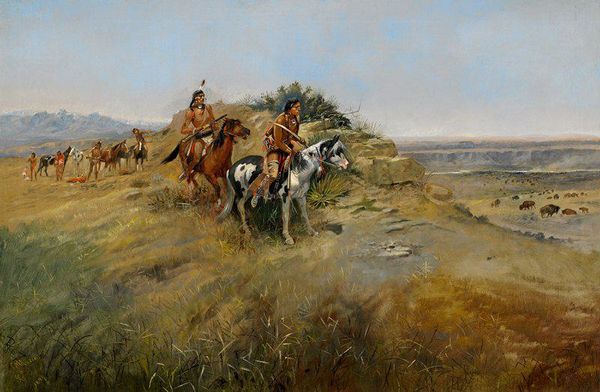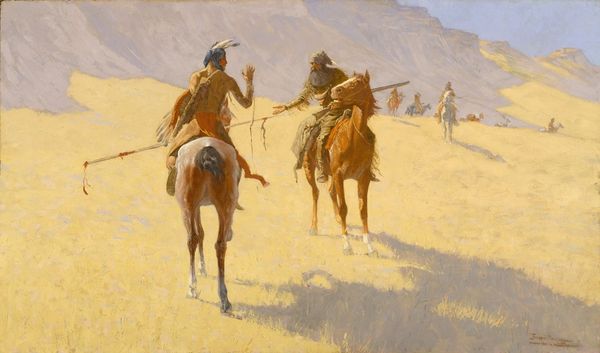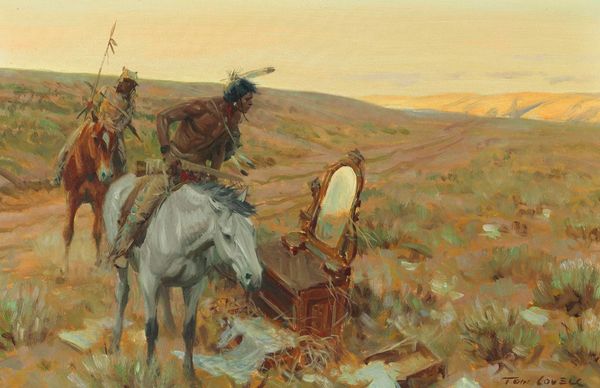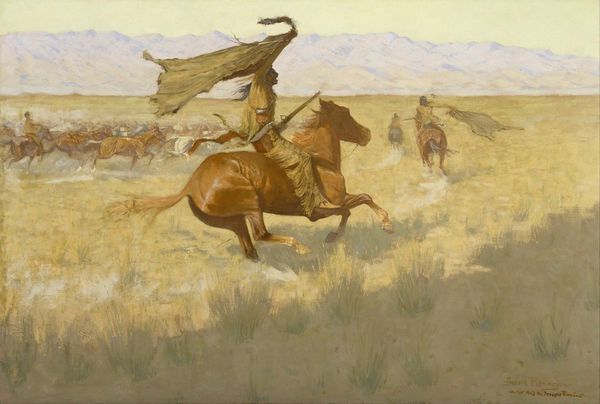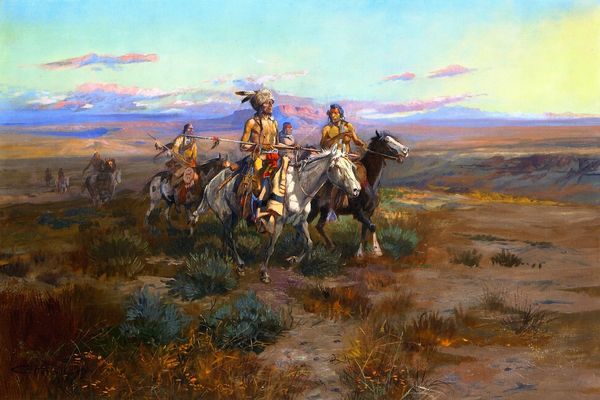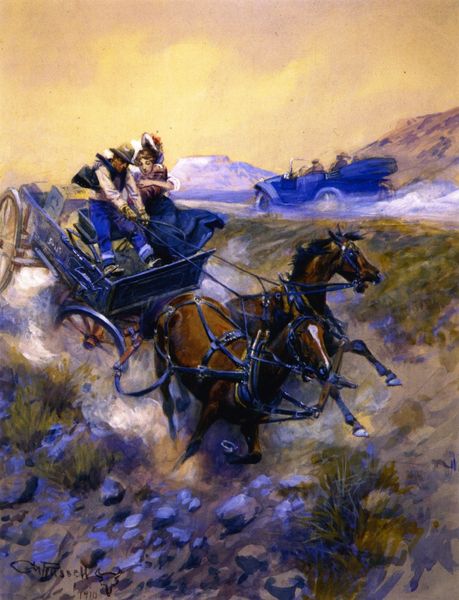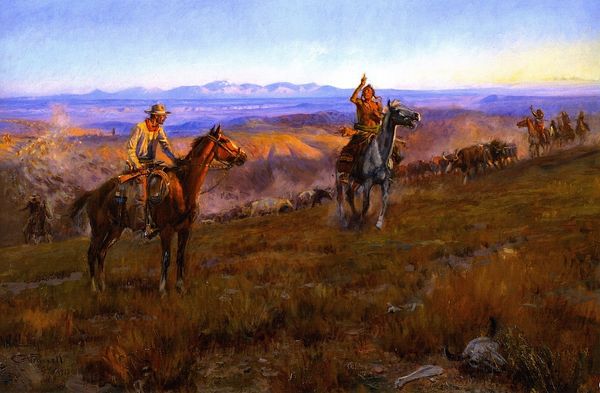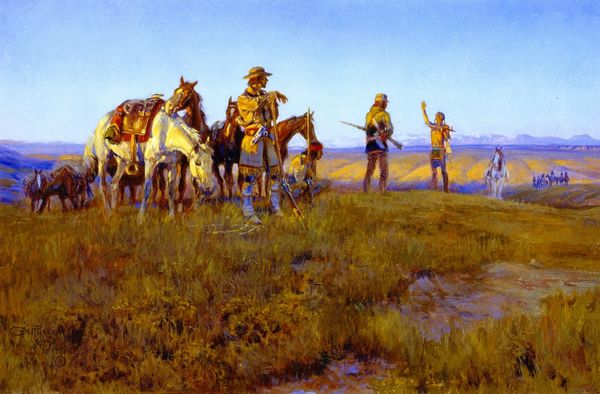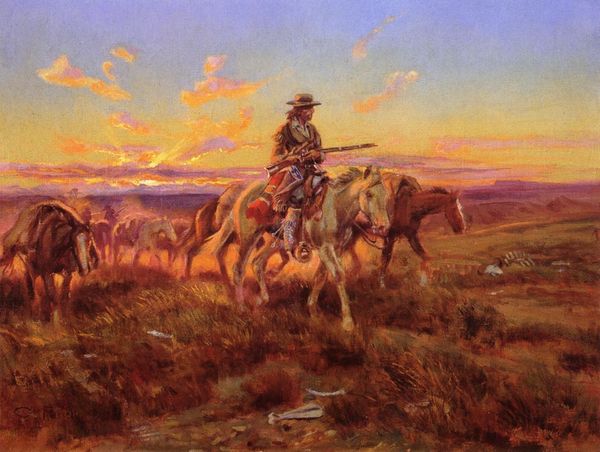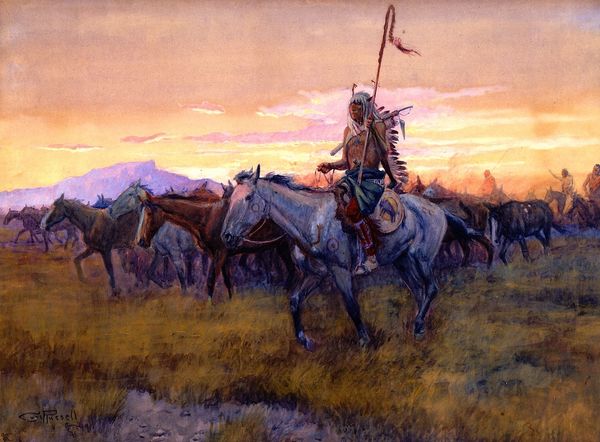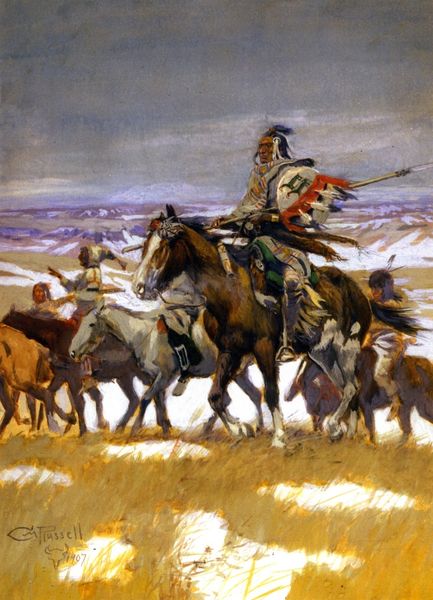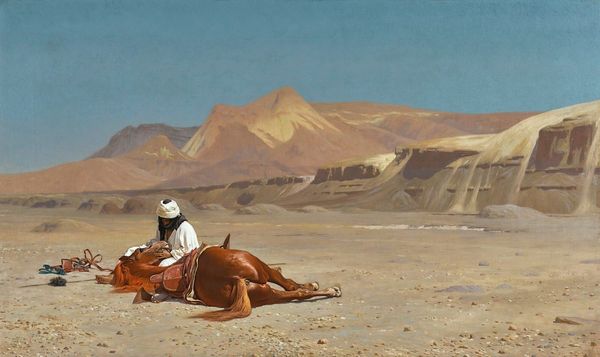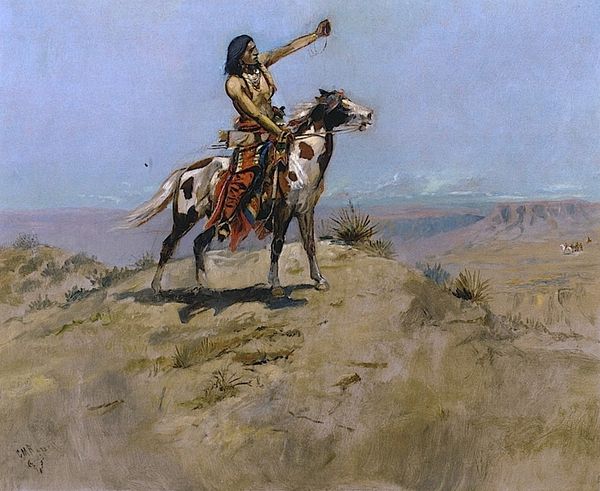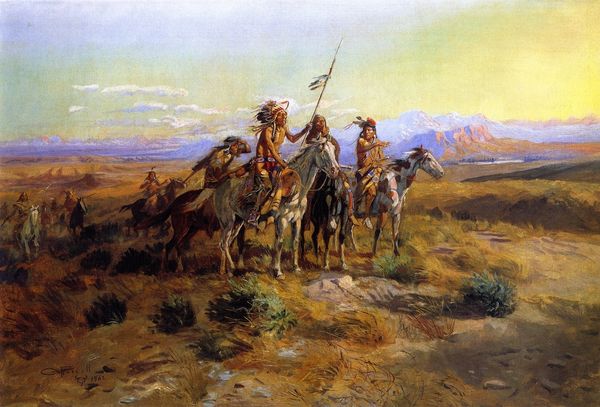
painting, oil-paint
#
narrative-art
#
painting
#
oil-paint
#
landscape
#
oil painting
#
animal portrait
Copyright: Modern Artists: Artvee
Editor: This is Tom Lovell’s *Catchers of Wild Horses*, an oil painting. I don’t see a date, but it seems to depict a historical scene with indigenous riders on horseback in a snowy landscape. There's a stillness to the image that makes me feel both intrigued and slightly melancholic. What's your take on it? Curator: Well, situating this piece within a broader narrative of representation is crucial. Lovell's work, though seemingly straightforward, exists in a complex historical and political context. What strikes me is how it engages with themes of both the romanticized West and the erasure of Indigenous perspectives. What historical accounts of this event can you uncover? Editor: I hadn't thought about the potential for erasure... It does seem very romanticized. The landscape almost dwarfs the riders, making them seem... vulnerable? Curator: Precisely. The landscape is not a neutral backdrop, and vulnerability is key. It is a contested space. This is something pervasive in paintings of this genre and historical moment. What does this visual imbalance say about the power dynamics being represented? About control of this space? Editor: It feels like the vast landscape, which is largely empty, could symbolize loss – the loss of land and way of life. Is Lovell perhaps inviting us to consider a narrative of displacement and resilience? Curator: Exactly. And considering that narrative through a lens of intersectionality. Think about gender roles, class, and the varying experiences within different Indigenous nations. It's essential to move beyond a monolithic understanding. How might feminist theory re-evaluate traditional power narratives represented in the image? Editor: So, we're not just looking at a pretty scene of "the West," but rather interrogating its representation and historical implications. The painting becomes a point of departure for critical conversations. Curator: Absolutely. By delving into the historical and social context, we confront uncomfortable truths, deconstruct myths, and advocate for a more inclusive understanding of the past. That's the power of art; it challenges us.
Comments
No comments
Be the first to comment and join the conversation on the ultimate creative platform.
